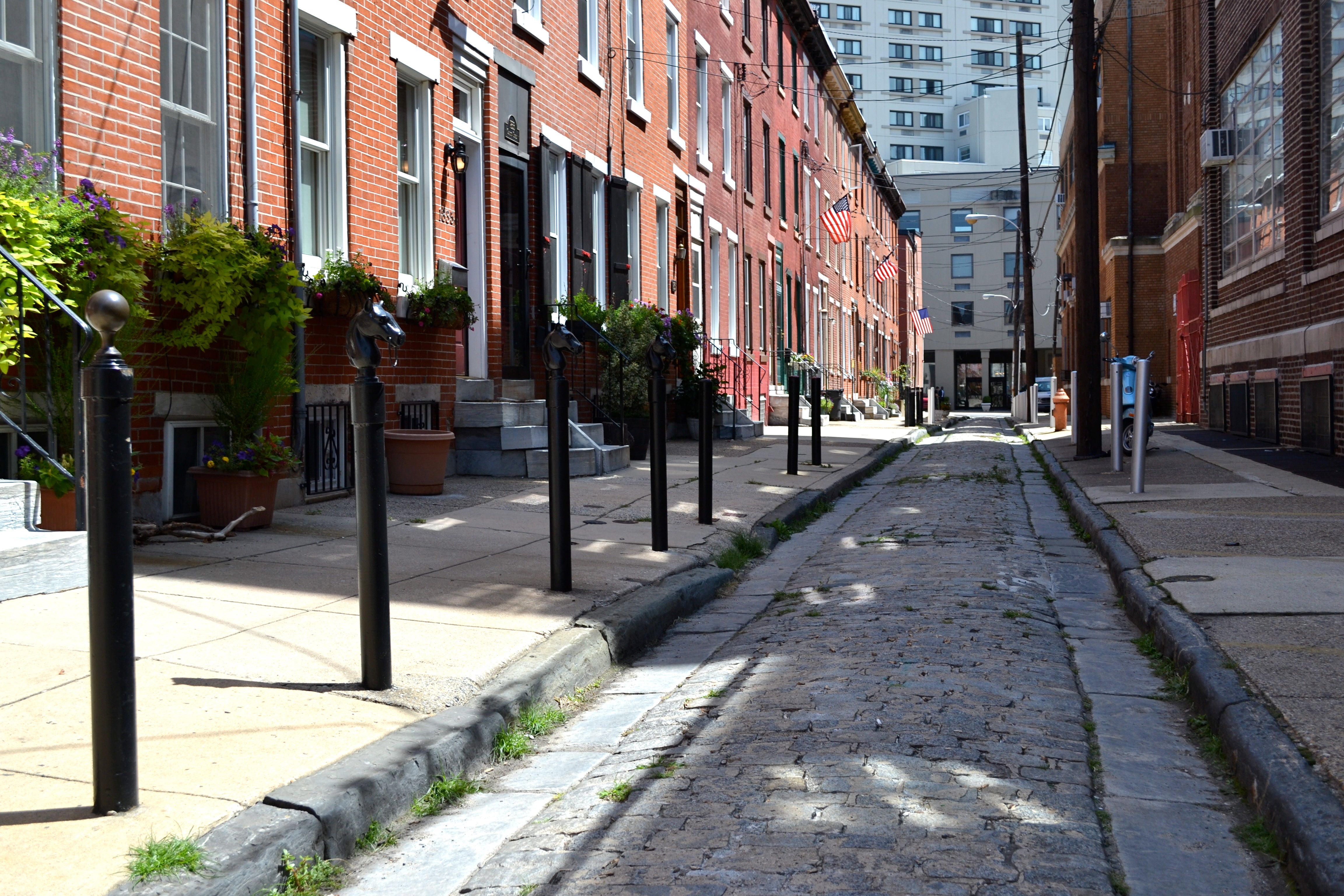Pilot gives historic street property owners more restoration control

Residents of Philadelphia’s designated historic streets could have a little more say in the preservation of their streets thanks to a pilot program being pushed forward by the Streets Department this construction season.
The Streets Department has announced a new “Plumber’s Ditch Restoration Pilot” for the city’s Historically Designated Street Network. Usually when a plumbing project requires workers to cut into a street, a temporary patch is created in the roadway. Then the Streets Department sends an in-house team to complete the permanent repair. That work is usually done in batches.
Through the new pilot, property owners on historic streets will be able to hire their own contractor(s) to restore roadway space excavated for plumbing repairs.
“This pilot came out of a conversation with some property owners on some of the historic streets that were hoping… when they have plumbing work, they could hire their own masonry contractor to also do the permanent restoration at the same time,” said Nancy Sen, director of transportation planning and analysis at the Streets Department.
One incentive for the pilot is that, by using their own contractors, property owners might be able to specify upfront what they want the roadway restoration to look like and to better maintain the historic character of the street. A private contractor might agree, for instance, to replace the same exact stones that were removed.
The property owners “want to make sure that the materials that are used, that go back in, are the exact materials from the street,” Sen said.
Part of the reason this process is being tested as a pilot is that costs will vary project to project. Property owners who opt into the pilot may be in for sticker shock, Sen said.
Typically a given plumber would pay a $550 permitting fee to cut a two-foot by two-foot plumbers ditch in a roadway. The property owner would incur that cost through the plumber’s fees. After the plumber made the temporary roadway repair, the Streets Department would make the permanent repair. By bundling repair work and using in-house forces, the Streets Department keeps repair costs relatively low.
Under the pilot, the cost of a permit is $50. That is intended to cover the administrative costs and a follow up inspection done by the Streets Department. The property owner will likely incur that permitting fee as well as the additional cost of the roadway repair through the plumber or subcontractor.
Following the repair, the Streets Department will inspect each restoration to make sure the structural integrity meets or exceeds what the department would have done, Sen said.
“We have issued regulations and specifications of what the restoration should be… so [contractors] know, up front, their responsibility,” she said.
There are approximately 220 blocks of historically designated streets throughout the city, and Sen said the Streets Department is guessing there might be about a dozen potential restorations that qualify for the pilot this season. That is purely a guess, she noted.
“We’re hoping that we can go through and have a couple experiment locations done,” she said. “Not that we’re wishing bad plumbing on anybody. That’s kind of the Catch-22.”
Sen cautioned that property owners interested in the pilot should first make sure their street is a historically designated street. Property owners should also, “make sure that they hire a reputable plumber and subcontractor that’s going to take care and make sure they don’t have any problems down the road,” she said.
Property owners on streets that qualify for the pilot should receive a letter from Streets Department Commissioner David Perri about the program in the next week or so. That letter will also include information about a historic street network assessment just getting underway.
The Streets Department has contracted with an engineering firm to assess all of the city’s historic streets. Since capital funding available for the historic street network is limited, the department will use the assessment to prioritize which streets need to be reconstructed. Sen expects that the assessment will take a couple months.
More information on the Plumber’s Ditch Restoration Pilot is available on the Streets Department’s website.
WHYY is your source for fact-based, in-depth journalism and information. As a nonprofit organization, we rely on financial support from readers like you. Please give today.



